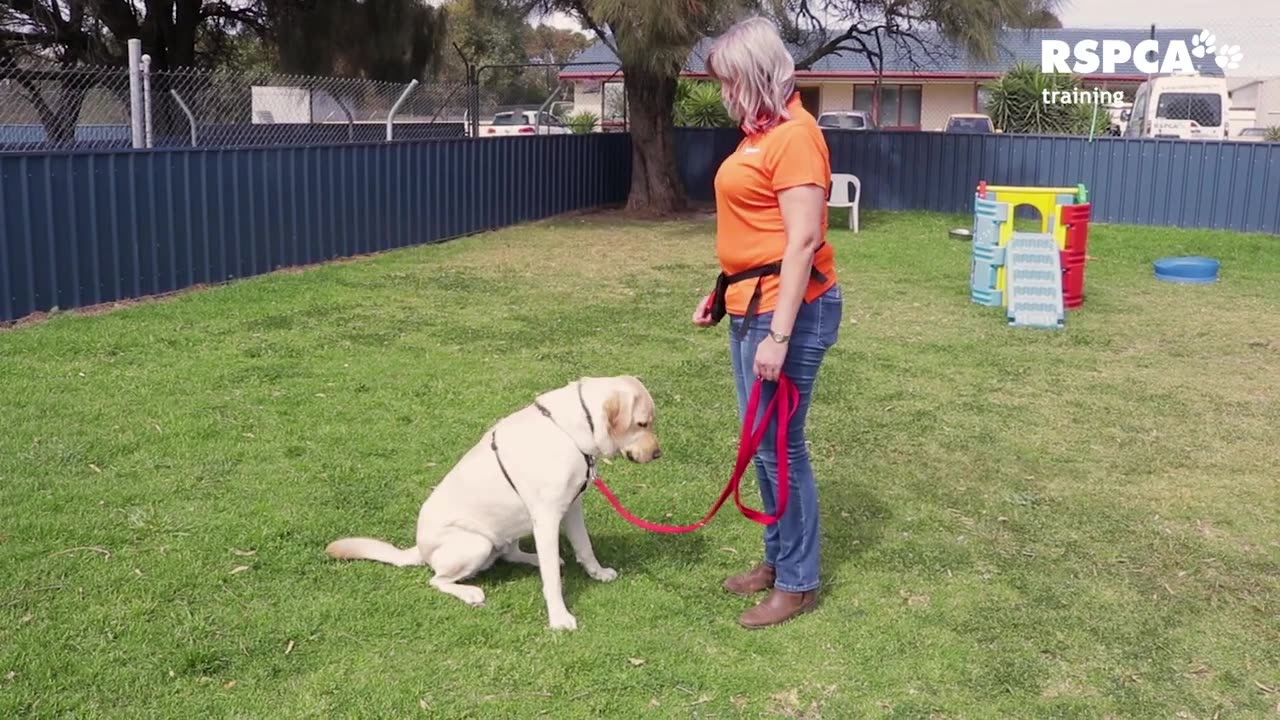Premium Only Content

Dog trening free series 1
Dog training is the process of teaching and guiding dogs to develop desired behaviors and responses to various commands and cues. It is an essential aspect of responsible dog ownership, ensuring that dogs can coexist harmoniously with humans and other animals while being well-mannered and safe in different situations.
Basic Obedience Training: This phase focuses on teaching fundamental commands like sit, stay, come, lie down, and heel. These commands establish the groundwork for good behavior and enhance the dog's ability to follow directions.
Positive Reinforcement: A key principle in dog training is positive reinforcement, which involves rewarding desired behaviors with treats, praise, or affection. This method encourages dogs to repeat these behaviors to earn more rewards.
Socialization: Introducing dogs to a variety of people, animals, and environments helps them become more comfortable and confident in different situations. Socialization prevents fear-based reactions and promotes a well-adjusted personality.
House Training: Housebreaking or potty training is essential for teaching dogs where and when to relieve themselves appropriately. Consistency and patience are crucial during this process.
Leash Training: Teaching dogs to walk calmly on a leash without pulling is essential for both their safety and the handler's comfort. Leash training encourages dogs to walk beside their owners without tugging.
Crate Training: Crate training provides dogs with a safe and secure space of their own, which can be helpful for house training and preventing destructive behaviors when left alone.
Clicker Training: Clicker training is a form of positive reinforcement that utilizes a clicker to mark the exact moment when a dog performs a desired behavior. It helps dogs associate the sound of the click with receiving a reward.
Behavioral Problem Solving: Training also involves addressing behavioral issues such as barking, chewing, jumping, and aggression. Understanding the root causes of these problems and using positive techniques to modify behavior is essential.
Advanced Training: Once basic obedience is established, advanced training can include more complex commands and tricks, agility training, or even specialized tasks for working dogs.
Consistency and Patience: Successful dog training requires consistency in commands, cues, and rewards. Patience is key, as all dogs learn at different paces, and it is essential to avoid punishment-based training methods, as they can lead to fear and anxiety in the dog.
Remember that each dog is unique, and training methods should be tailored to their individual personality, breed, and age. Positive and compassionate training techniques create a strong bond between the dog and its owner while fostering a happy, well-behaved canine companion. If unsure about the training process, seeking guidance from a professional dog trainer can be highly beneficial.
-
 1:45:48
1:45:48
Glenn Greenwald
14 hours agoGlenn Reacts to News of the Week; Plus: Audience Q&A | SYSTEM UPDATE #443
116K83 -
 11:05:38
11:05:38
Dr Disrespect
19 hours ago🔴LIVE - DR DISRESPECT - PUBG - 5 CHICKEN DINNERS CHALLENGE
229K21 -
 3:23:12
3:23:12
I_Came_With_Fire_Podcast
18 hours agoSHALL NOT BE INFRINGED| THE TYRANNY OF UNELECTED BUREAUCRATS | XI BOWS
56.6K9 -
 4:19:36
4:19:36
SynthTrax & DJ Cheezus Livestreams
20 hours agoFriday Night Synthwave 80s 90s Electronica and more DJ MIX Livestream THE GREAT EDO WARS OF 2067 Edition
85.3K10 -
 4:45:15
4:45:15
RalliedLIVE
10 hours ago $1.85 earnedWarzone Domination w/ Ral
60.8K1 -
 1:10:17
1:10:17
Sarah Westall
12 hours agoWorld Leaders Increasingly Display Panic Behavior as Economic Change Accelerates w/ Andy Schectman
90.2K18 -
 59:54
59:54
Motherland Casino
9 hours ago $2.14 earnedScar x Ayanna
38.9K7 -
 41:57
41:57
BonginoReport
14 hours agoProtecting Kids From WOKE Ideology in School (Ep. 35) - Nightly Scroll with Hayley Caronia -04/25/25
126K51 -
 7:17:12
7:17:12
SpartakusLIVE
12 hours agoFriday Night HYPE w/ #1 All-American Solo NUKE Hero
33.8K -
 1:15:07
1:15:07
Kim Iversen
1 day agoThe Left Is Dead — What And Who Will Rise From the Ashes?
108K105